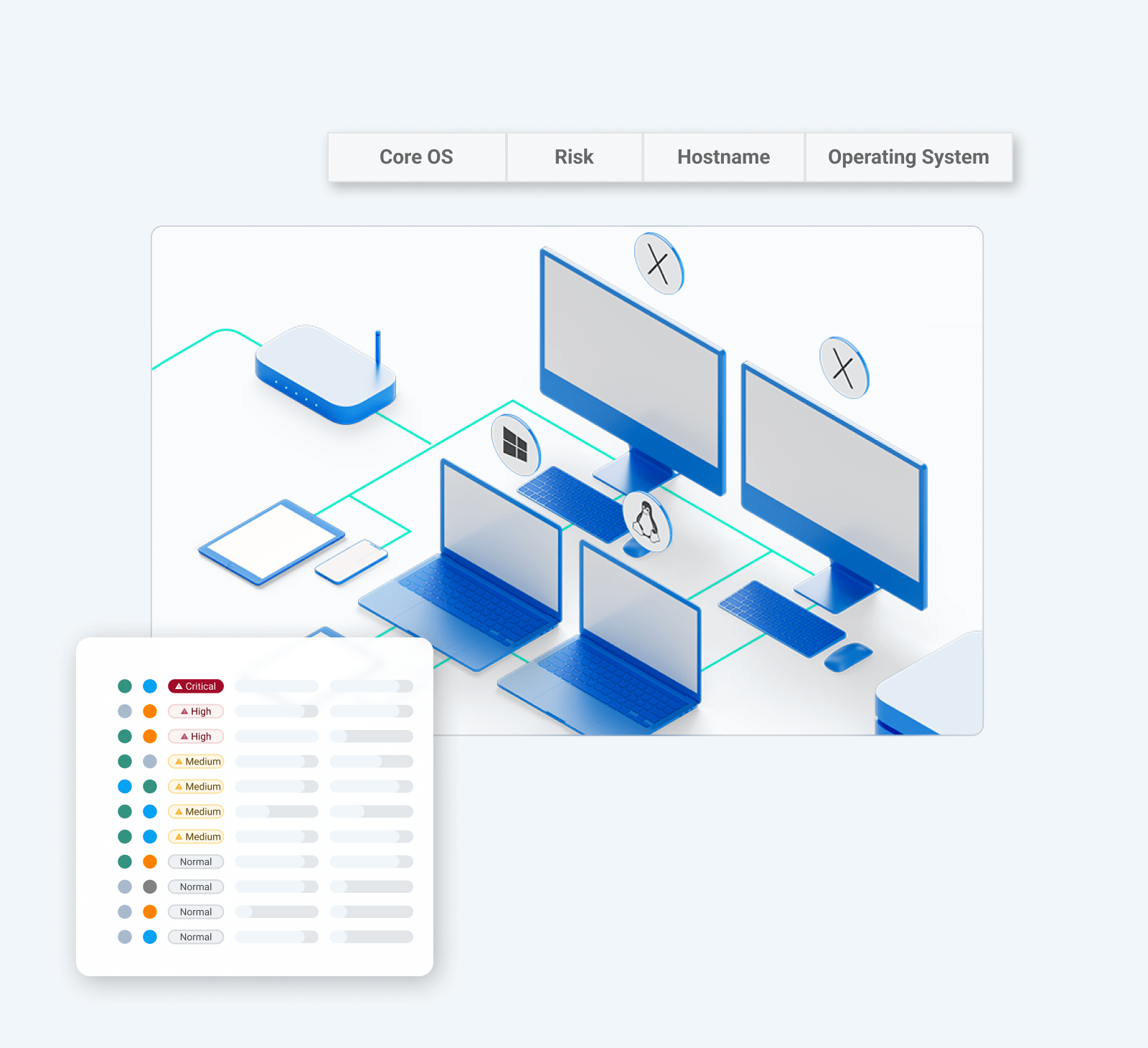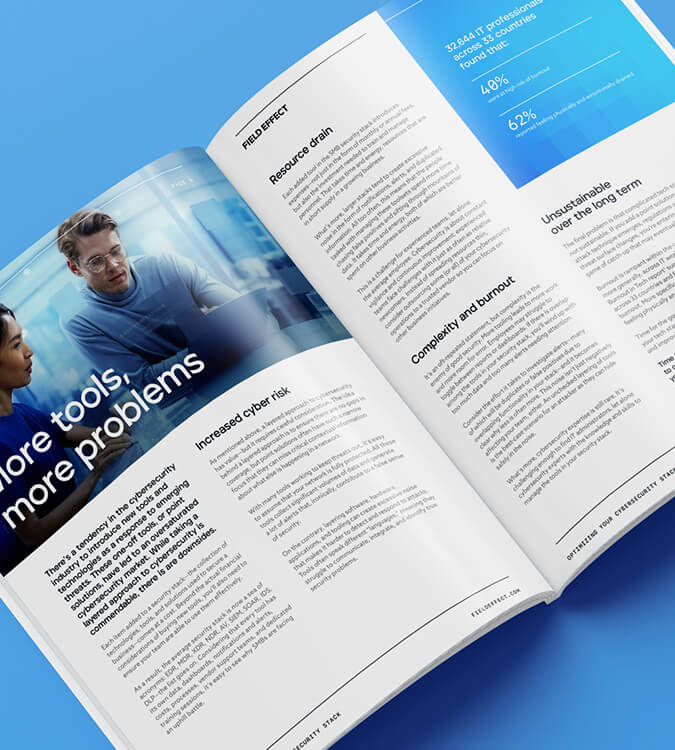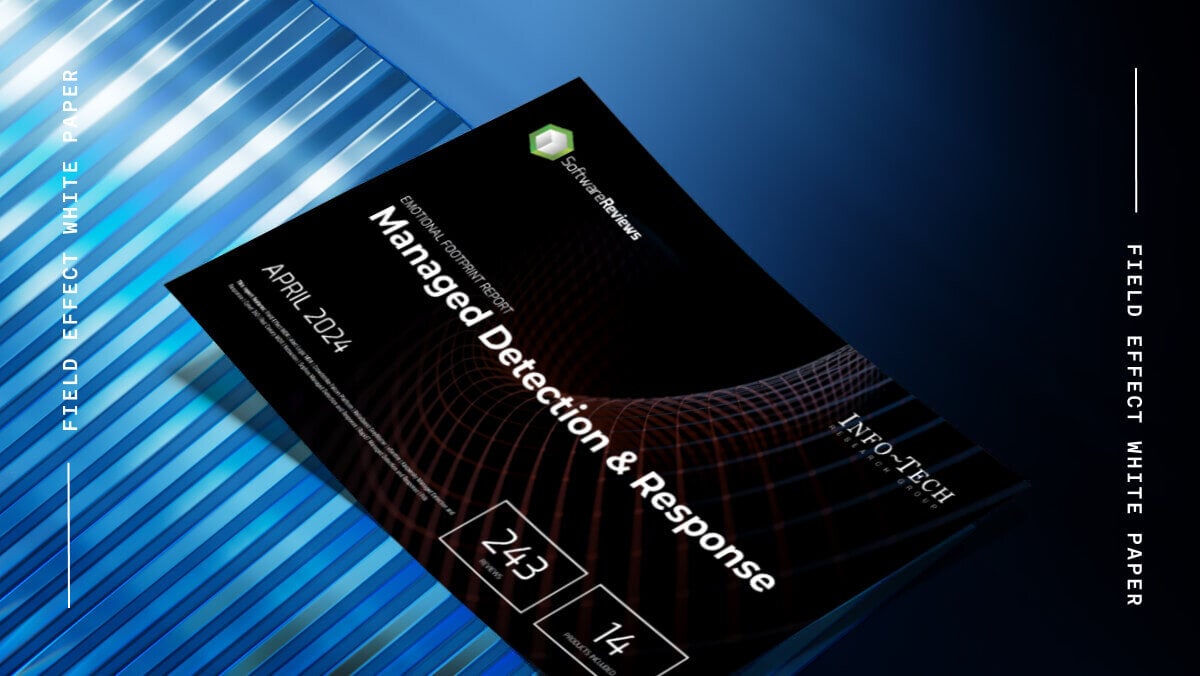cybersecurity solutions
Endpoint detection and response (EDR) benefits and limitations
Endpoint detection and response (EDR) is a widely used cybersecurity solution that provides critical visibility into threats targeting your endpoints, enabling quick detection and response.
EDR tools offer many benefits, making them a popular solution, but it's important to understand their limitations. EDR is just one piece of a comprehensive cybersecurity strategy. Businesses often need holistic coverage for effective cybersecurity.

EDR tool strengths and challenges
What is endpoint detection and response (EDR)?
Endpoint detection and response (EDR) focuses on securing endpoint devices—any device with connections to and from a network. Endpoints typically include laptop and desktop computers, smartphones, tablets, Internet-of-Things (IoT) devices, servers, and more.
Where modern EDR truly sets itself apart is with a greater focus on active monitoring and the ability to identify abnormal or suspicious activity—which may go beyond known threats—and react appropriately. For example, actions taken could include active blocking, isolating a host, or escalating findings for further investigation. This is a stark contrast to classification-based detection because it adds a layer of intelligence to the system; classification-based detection requires previous experience or understanding of threats.
EDR strengths and benefits
EDR tools play a significant role in proper cybersecurity. They offer these three major strengths and benefits to businesses:
- Improved protection vs. antivirus software
- Cover endpoints well, which are a considerable portion of an organization's threat surface.
- Continuous monitoring of endpoints allows for rapid threat detection and response.
Endpoint security is a significant step up from antivirus software alone. EDR tools offer a broader coverage of endpoint threat detection. Combined with ongoing monitoring and rapid response, EDR provides a strong cybersecurity base for most businesses.
EDR challenges and limitations
While EDR is stronger than traditional antivirus protection, it also has some major weak points. Here are a few key reasons why EDR alone can't fully protect modern organizations from advanced cyberattacks:
- EDR is a reactive, not proactive, approach to cybersecurity. EDR simply responds to threats, it does not prevent them.
- Endpoint-only protection leaves significant security gaps, exposing vulnerabilities.
- EDR requires deep expertise to properly manage. Without it, EDR can be highly ineffective.
Relying solely on EDR leaves exploitable gaps in network visibility and protection.
What is endpoint detection and response (EDR)?
Endpoint detection and response (EDR) focuses on securing endpoint devices—any device with connections to and from a network. Endpoints typically include laptop and desktop computers, smartphones, tablets, Internet-of-Things (IoT) devices, servers, and more.
Where modern EDR truly sets itself apart is with a greater focus on active monitoring and the ability to identify abnormal or suspicious activity—which may go beyond known threats—and react appropriately. For example, actions taken could include active blocking, isolating a host, or escalating findings for further investigation. This is a stark contrast to classification-based detection because it adds a layer of intelligence to the system; classification-based detection requires previous experience or understanding of threats.
EDR strengths and benefits
EDR tools play a significant role in proper cybersecurity. They offer these three major strengths and benefits to businesses:
- Improved protection vs. antivirus software
- Cover endpoints well, which are a considerable portion of an organization's threat surface.
- Continuous monitoring of endpoints allows for rapid threat detection and response.
Endpoint security is a significant step up from antivirus software alone. EDR tools offer a broader coverage of endpoint threat detection. Combined with ongoing monitoring and rapid response, EDR provides a strong cybersecurity base for most businesses.
EDR challenges and limitations
While EDR is stronger than traditional antivirus protection, it also has some major weak points. Here are a few key reasons why EDR alone can't fully protect modern organizations from advanced cyberattacks:
- EDR is a reactive, not proactive, approach to cybersecurity. EDR simply responds to threats, it does not prevent them.
- Endpoint-only protection leaves significant security gaps, exposing vulnerabilities.
- EDR requires deep expertise to properly manage. Without it, EDR can be highly ineffective.
Relying solely on EDR leaves exploitable gaps in network visibility and protection.
EDR vs managed detection and response (MDR)
Managed detection and response (MDR) is an outsourced security service in which a team of third-party experts handles threat monitoring, detection, and response capabilities. MDR service providers use a strategic mix of technologies to provide detection and response capabilities to meet the complete cybersecurity needs of their end users.
| Endpoint detection and response (EDR) | Managed detection and response (MDR) | |
| Capabilities |
|
|
| Coverage |
|
|
| Benefits |
|
|
| Limitations |
|
|
FIND THE RIGHT CYBERSECURITY SOLUTION
Free guide: Optimizing your cybersecurity stack
Having the wrong or too many security tools in your stack is tedious, time-consuming, and costly—and could even put your business at risk.
Learn how to optimize your security stack so you have the best cybersecurity solution available while putting hours back in your day and money back in the budget.
EDR vs MDR: What's right for you?
Important points to consider
Choosing the right cybersecurity solution for your business is critical, but doesn't need to be complicated. Start by asking these important questions:
- Is endpoint-only coverage enough for my business?
Since endpoints often represent the most significant component of your threat surface, it might seem like EDR is all you need. But it’s important to recognize that there are cost-effective, holistic MDR options that outperform the limited protections of an EDR. - Do we have the expertise and resources to run an EDR?
EDR requires deep expertise to set up and continue to manage properly. MDR alleviates a large burden on your in-house security team (if you have one) and ensures your tools are managed properly. - What could a cyberattack cost us?
Cybersecurity threats continue to evolve, using new techniques and exploits to gain access to important business information. Threat actors can then hold that data for ransom, or openly share the information and damage the victim's reputation. Investing in holistic cybersecurity that proactively prevents expensive threats is worth the investment.
Choosing the right MDR solution
MDR solutions are often considered the best option for a company's cybersecurity. There are many MDR service providers, and it's vital you make an informed choice when choosing your partner.
- Not all MDR services provide complete threat protection.
MDR service offerings vary widely. Some will just offer to manage an EDR solution for you, exposing you to some of those EDR limitations from earlier. Other MDR providers encompass a more holistic approach that protects endpoints, cloud services, networks, and more.
- Some MDR solutions use disparate tooling.
Some MDR services are merely several disparate tools under one umbrella solution. This approach requires managing multiple tools, adding unnecessary complexity, and can even expose your business to threats. Prioritize MDR solutions with natively built, holistic approaches. - The best MDR prioritizes supporting your business.
Your MDR provider should be your partner, but not all MDR services see it that way. A great MDR provides simple, accessible information and expert recommendations and support whenever you need it.
compare leading mdr vendors
Report: MDR Emotional Footprint 2024
SoftwareReviews, a division of Info-Tech Research Group, had users rate MDR vendors in 25 categories, including service experience, strategy & innovation, and product impact.
Why customers choose Field Effect MDR
Made for SMBs
People, process, and technology
Risk management
Hands-free cybersecurity
HEAR FROM FIELD EFFECT MDR USERS
Field Effect MDR: Buyer Experience Report
Read this Buyer Experience Report to learn what real Field Effect MDR users have to say about the product and why it "is a clear leader in terms of value and features for SMBs."

CyberSecurity is our Priority
About Field Effect
Field Effect, a global cybersecurity company, is revolutionizing the industry by bringing advanced cybersecurity solutions and services to businesses of all sizes. We build solutions that are sophisticated, yet easy to use and manage, so every business owner can get the hands-free cybersecurity they expect and the sleep-filled nights they deserve.
Field Effect
Cybersecurity made simple.
Businesses of all sizes should have access to world-class cybersecurity.


